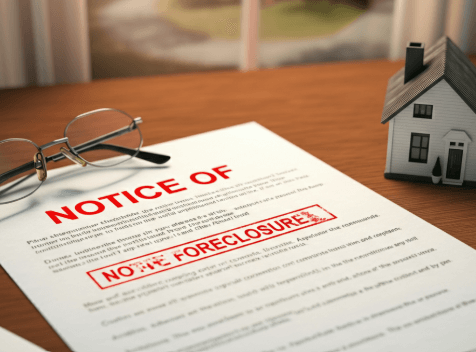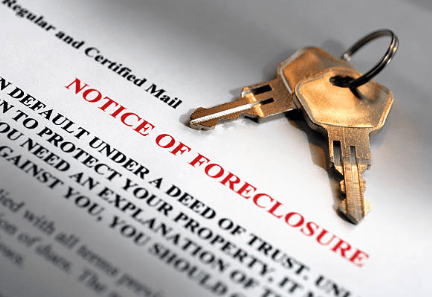Navigating the foreclosure procedure in Florida can seem overwhelming for homeowners and lenders alike. Understanding the timeline and key steps is crucial for anyone facing this challenge. One of the most common questions posed by those involved is, “How Long Does it Take to Foreclose on a House in Florida?” Knowing the answer to this can help you prepare and strategize accordingly. In this blog, we will delve into the various stages of foreclosure in Florida, providing a comprehensive guide on “How Long Does it Take to Foreclose” from the initial notice to the eventual auction.
Real estate investors like Steve Daria and Joleigh emphasize the importance of understanding Florida’s foreclosure timeline for effective investment planning. Their experience highlights that the process can vary widely based on individual circumstances, from the initial notice to the final auction. By familiarizing themselves with each stage, investors can make informed decisions and strategize accordingly.
What is a Foreclosure in Florida?
Before we wade into the details of how long does it take to foreclose, it’s vital to establish a baseline understanding.
Foreclosure is when a lender can take over the property used to secure a mortgage loan if the mortgagor or the homeowner defaults or misses mortgage payments.
Florida is a ‘judicial foreclosure’ state, meaning all foreclosures must be processed through the courts.
This legal requirement significantly impacts the foreclosure timeline and the parties’ rights.

Understanding the Timeline: “How Long Does it Take to Foreclose on a House in Florida?”
Grasping the timeline for foreclosure in Florida is crucial for homeowners facing the threat and investors looking to purchase foreclosed properties.
This section provides a detailed overview of the steps and time frames involved in understanding how long does it take to foreclose on a house.
The Initial Default
You’re technically in default after you’ve missed your first mortgage payment.
However, the foreclosure process doesn’t begin immediately.
Usually, lenders or servicing companies will reach out to the homeowner to discuss the missed payments, work out a payment plan, or offer various foreclosure prevention alternatives.
Example: If you miss your payment on June 1st, the lender might contact you in early July to discuss options like loan modification or a repayment plan.
The Lis Pendens Filing
In Florida, for a foreclosure to move forward, a lender files a ‘Lis Pendens’ with the court.
This is a public notice of a pending lawsuit served to the borrower, signaling that the foreclosure process is formally beginning.
A Lis Pendens is typically filed 90 days after a borrower misses their first payment.
Example: If the first missed payment was on June 1st, the Lis Pendens might be filed around September 1st.
The Legal Complaint
After the Lis Pendens is filed, the lender’s attorney files a complaint with the court that begins the official foreclosure process.
The borrower should receive a summons and complaint within 30 days of filing.
At this point, the borrower has limited time to respond — usually 20 to 30 days.
The Default Judgment
Once the borrower is unable to respond to the complaint, the lender may seek a default judgment.
This usually lasts 60 to 90 days from the initial complaint filing.
The property becomes officially in foreclosure when the court grants a default judgment.
Example: If the complaint was filed on October 1st, a default judgment might be issued between December and January.
Get An Offer Today, Sell In A Matter Of Days…
The Foreclosure Sale Date
With the default judgment, the lender can schedule a foreclosure sale — essentially an auction where the home is sold to the highest bidder.
In Florida, this sale date is typically set 20 to 35 days after the judgment.
The Foreclosure Sale
If the lender sells the property at foreclosure, it will file a sale certificate with the court.
The certificate is usually filed within ten days of the sale, though the actual property transfer may be delayed if the borrower raises objections.
The Final Step: Eviction
If the property is sold at foreclosure, the new owner must get a writ of possession from the court.
This allows the new owner to begin the eviction process, which can take several more weeks or months, depending on state and local laws.
Factors That Can Extend the Timeline
While the above timeline provides a general order and estimated time frames, the Florida foreclosure process can be prolonged due to several factors:
Loan Modification
A borrower and lender may agree to a loan modification, extending the process by several months or halting it altogether.
Bankruptcy Filing
If a borrower files for bankruptcy, the foreclosure process will be paused until further order of the bankruptcy court.
Defense Strategies
Borrowers can file legal defenses, which, if successful, can either delay or stop the foreclosure process altogether.
Redemption Rights
Florida provides a right of redemption, allowing the homeowner to repurchase the home within a specific time frame after a foreclosure sale by paying the sale price plus costs.
Homeowner Rights and Foreclosure Defenses in Florida
In Florida, homeowners navigating foreclosure proceedings have specific rights and potential defenses that can significantly impact the process.
Legal Technicalities
Meticulously reviewing your mortgage documents is crucial in Florida.
Errors or omissions in the foreclosure process can be grounds for dismissal.
Procedural Missteps
Familiarize yourself with the entire process to catch any irregularities that could invalidate a foreclosure proceeding.
Violation of Servicemembers Civil Relief Act (SCRA)
Lenders must verify the military status of borrowers who default, as foreclosing on active-duty service members without due process is prohibited.
Fraudulent or Predatory Lending Practices
If you believe your mortgage was obtained through fraudulent or predatory practices, you may have legal recourse to challenge the foreclosure.
The Post-Foreclosure Stage
Once a foreclosure is complete, the lender will usually evict the former homeowner.
The home will eventually be resold, and any remaining judgment amounts will be collected.
Communication is Key
Open lines of communication with your lender can lead to various options to retain your home or lessen the damage to your credit score.

Know Your Rights
Understand Florida’s specific foreclosure laws and your legal rights.
Foreclosure processes and laws are in place to protect you.
Seek Legal Counsel
A foreclosure attorney can explain the process, evaluate your situation, and provide various options under Florida law.
Investor’s View: Opportunities Amidst Foreclosure
Investors in Florida can find lucrative opportunities in the post-foreclosure market.
With an understanding of the foreclosure process, Florida’s real estate laws, and market trends, strategic investing can lead to substantial ROI.
Due Diligence
Conduct extensive due diligence on properties of interest.
This includes understanding the property’s title, liens, encumbrances, and the potential for rehabilitation and resale.
Auction Strategy
To excel at foreclosure auctions, meticulous research and due diligence are essential.
Begin by understanding the properties on offer, their market value, and potential profitability.
Set an apparent maximum bid, factoring in repair costs and projected returns.
Post-Foreclosure Transactions
Understand how to approach banks or new property owners to acquire post-foreclosure properties.
Conclusion
Navigating how long does it take to foreclose on a house in Florida is no small feat, whether you’re a homeowner fighting to keep your property, a potential buyer looking for opportunities, or an investor seeking a new venture. By understanding the timeline, your rights, and possible strategies, you can make informed decisions and turn a difficult situation into a more favorable one.
This is a complex process, and seeking professional advice is always recommended. The labyrinth of legalities and possible defenses is best tackled with a trusted professional by your side. Engaging with the resources at hand can be the difference between an ordeal and an opportunity.
**NOTICE: Please note that the content presented in this post is intended solely for informational and educational purposes. It should not be construed as legal or financial advice or relied upon as a replacement for consultation with a qualified attorney or CPA. For specific guidance on legal or financial matters, readers are encouraged to seek professional assistance from an attorney, CPA, or other appropriate professional regarding the subject matter.

